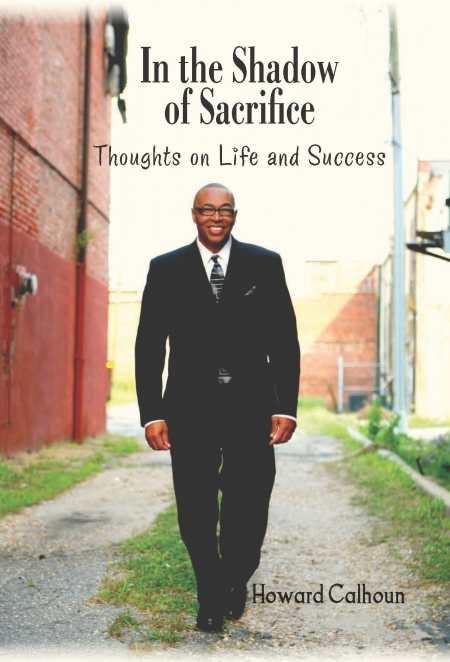In the Shadow of Sacrifice
Thoughts on Life and Success
Howard Calhoun admits that he started out as a reluctant author. Only a clear recognition of the extent of his late mother’s sacrifices, especially those on his behalf, convinced him that he needed to share his stories. In the Shadow of Sacrifice: Thoughts on Life and Success is his tribute to his mother. “It is from her,” he writes, “that I derived the courage and resilience to step forward.” Calhoun’s courage is evident in what he divulges, for he reveals life as he has lived it, the bad parts and the good. With both admirable insight and delightful charm, he exhibits a sharp eye for detail and a keen sense of humor. Some of his stories are thought provoking, and others are comical, but they all come together as a wonderfully rounded self-portrait. His mother was surely quite special to have served as the inspiration for his book.
The author was born into poverty, “the ninth child of a mother who birthed eleven” between the 1940s and the 1960s. As he tells it, “That is not a complaint, just a fact.” Some of his comments about the family’s circumstances are laugh-out-loud funny, yet he does not ridicule; he shares his stories with great love and respect. The peanut butter or jelly sandwich tale is particularly inspired. Watching the wheels spin in young Calhoun’s mind as he philosophizes about his sandwich and devises a solution to the either-or dilemma is funny, fascinating, and revealing.
In later, more serious chapters—for example, when he discusses the formation of core beliefs or the vicissitudes of popular parenting models—it is easy to see those same wheels at work. Calhoun looks at poverty and parenting as philosophically as he once approached his desired peanut butter and jelly sandwich. “Complete and abject illiteracy and poverty at birth is no sure determinant for failure in life,” he argues, and believing that it is “limited thinking, which in turn amounts to limited achievements.” To Calhoun, such limits are self-imposed, then perpetuated from one generation to the next. His own mother “knew and accepted that her situation didn’t have a silver lining,” but she suffered and sacrificed, allowing and encouraging better things for her children; she fought the perpetuation of not only poverty, but also “anger, bitterness, and hatred.”
Whether speaking of fame (an “environment of values based on delusional and illusionary factors”) or the government (“The expectation that those…who write and enforce policies are always on the up and up, fair, and will play by the rules has been purged from my thinking”), Calhoun says what he thinks and gives his reasons. He deserves credit for his upbeat attitude and enjoyable presentation, and his observations are reliably astute. This is an honest, heartfelt book with ideas to ponder and great stories sure to elicit a smile. In the Shadow of Sacrifice is a labor of love. Calhoun has undoubtedly made his mother proud.
Reviewed by
Cheryl Hibbard
Disclosure: This article is not an endorsement, but a review. The publisher of this book provided free copies of the book and paid a small fee to have their book reviewed by a professional reviewer. Foreword Reviews and Clarion Reviews make no guarantee that the publisher will receive a positive review. Foreword Magazine, Inc. is disclosing this in accordance with the Federal Trade Commission’s 16 CFR, Part 255.

